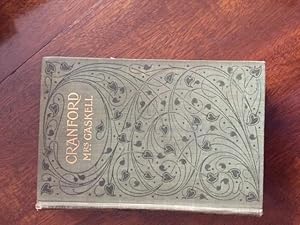


In the same way, Cranford's narrative reflects the formal properties of economy. Minor though they might seem, the sundry small events of village life are the principal on which Cranford draws for its barely eventful subsistence.

The innumerable "small economies" practiced by Gaskell's characters are among innumerable such arrangements forming the larger social and narrative economy of Cranford/Cranford. In Cranford (1853) everything from managing household expenditures to managing one's life is regualted by considerations of economy. Throghout Gaskell's fiction the rightness or the wrongness of a household usually finds its objective correlative in the manifest management of that household. Gaskell the standard of "economy" is applied in its older, undissociated sense, encompassing the regulation, rather than the mutually exclusive demarcation, of material and moral life. "ECONOMY." writes William Cobbett in Cottage Economy (1821-22), "means management, and nothing more and it is generally applied to the affairs of a house and family, which affairs are an object of the greatest importance, whether as relating to individuals or a nation." Due to the influence of the dismal science of political economy, the nineteeth century witnessed a narrowing of this concept to denote a specialized instrumentality rather than the integrated totality formerly encompassed by the term.


 0 kommentar(er)
0 kommentar(er)
